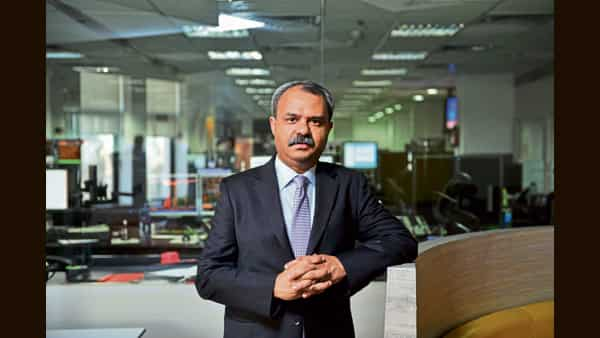[ad_1]
Mumbai: Global lender HSBC aims to grow its India business at a brisk pace and even quadruple the number of customers over a period. In an interview, Hitendra Dave, chief executive of the India business, said the entire management, including the bank’s global board, can see that the country, in the next decade, could be as good as it has ever been. Edited excerpts:
Will India soon be included in global bond indices?
This is a subject that is overhyped, quite honestly. Every time the bonds rally and nobody understands why, people say a bond index inclusion is coming, and when bond prices fall and nobody understands why, they say the supposed fact has now become falsified. I think one day it will happen. It will be like the wolf story. Given the terms that the index providers are insisting on, I see very little probability of authorities in India willing to concede those. So, unless there is a fundamental change in that position, I do not see that happening. My own sense is, index providers will need to show more flexibility.
Is HSBC India positioning itself differently from peers who have been reducing India exposure?
India is the number one priority for HSBC right now. My entire management team, the global board, can see that India in the next 10 years could be as good as we have ever been. All this is based on data. You can see it in the number of houses getting registered every month, you can see it in the goods and services tax (GST) collection staying firm. You can see it in the stock market remaining where it is despite $30 billion of outflow. Forex rates versus every other currency apart from the dollar, are not just stable, but stronger. You can see wealth creation, the number of luxury cars getting sold, number of Indian students going abroad. Why would we not want to grow here?
How fast do you see your India business growing?
The most prominent thing that is happening here is that more and more people are becoming wealthier and more and more people want to institutionalize or formalize their financial savings and investment plans. So, a mutual fund would appear to be a vehicle to be able to ride that wave. So that’s what explains why we decided to acquire the L&T mutual fund. We also want to either double, triple or quadruple the number of customers we serve across segments. These include credit cards, mortgages, personal loans and business banking customers, besides others. Whether it is in corporate banking, multinational banking, institutional banking, investment banking, SME banking or retail banking, we have growth ambitions.
What prompted a section of domestic corporates to aggressively deleverage?
There is a larger narrative here. Entering into the pandemic, almost all large groups in India had their boards pressurizing them to deleverage. They had seen large companies go under but this was not the case in India. However, when you had very large companies change hands, I think it spooked a lot of boards. They did not want to lose their companies and in any case that level of indebtedness did not make sense. As cash flows went towards repayment, indebtedness has come down quite dramatically.
Are you sensing the return of private capex?
My own sense is that the capex numbers of 2010-2016 when projects worth ₹50,000 to ₹70,000 crore were announced, will not be seen in this cycle. Those were largely funded by bank debt and even the equity was encumbered, so actually there was no equity. Bankers are going to ask more questions. Earlier somebody would just give a projection report that this will be the traffic and this is the time it will take to construct the highway and we all accepted it. When things started going bad, it became disastrous. I think you are going to see capex this time not come top down but from smaller businesses. Also, a lot of capex will get done on the back of very substantial government spending.
What is your view on lending to startups?
We bank more than 1,000 startups; and 44-45 of the unicorns. We have a $250 million lending fund for startups. Startups are one of the best things that has happened in India in the last five to seven years. You see the number of young people who are in their 20s and early 30s and taking risks. They become wealth and job creators and we needed that. All they are trying to identify is a process that needs disruption. We have tools to judge governance, but it is very difficult to describe what those are. It is also something we internally refer to as a smell test. We could go wrong, of course. The second thing to see is whether the idea will disrupt or not. Finally, you also see their ability to raise equity, because many of these are cash-burn, negative Ebitda (earnings before interest, taxes, depreciation, and amortization) businesses.
Download The Mint News App to get Daily Market Updates & Live Business News.
[ad_2]
Source link
John Miller has been writing about science, gaming, and tech culture for over a decade. He’s a top-rated reviewer with extensive experience helping people find the best deals on tech and more.


